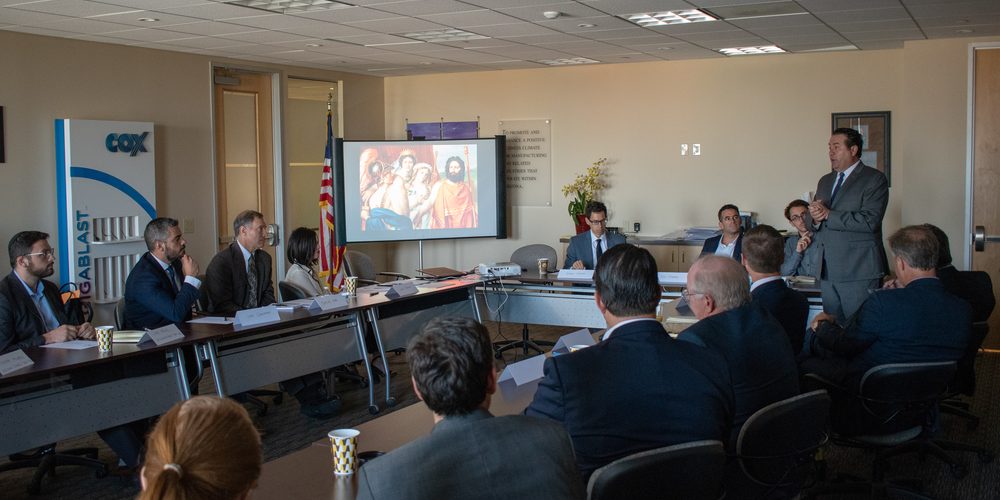A delegation of Israeli business leaders and advocates, alongside Arizona counterparts and lawmakers, championed international relations last week during a visit at the Arizona Chamber of Commerce and Industry in Phoenix.
The meeting follows a series of collaborative discussions about how Israel and Arizona can learn from each other and help each other meet similar goals.
“There’s a very strong innovative culture within Arizona,” said Paul Hughes, senior vice president for business attraction at the Arizona Commerce Authority. “Most everybody here is from somewhere else, and it’s an excellent pot – if you will – for all of this cross-pollination to take place, where ideas can flourish under a very low regulatory environment.”
Arizona business leaders hope to draw Israeli entrepreneurs to Arizona’s growing finance, technology, manufacturing and defense industries. In turn, Israeli innovators hope to work with Arizonans to find new and better solutions to shared challenges.
Water is a prime example. Israel is about 60 percent desert, and Arizona is about 42 percent desert, with 65 percent of the state population residing in the heart of the Sonoran Desert in Maricopa County.
“I was born and raised in maybe one of the most arid places in Israel, in the middle of the desert,” said Gili Ovadia, Consulfor Economic Affairs to the West Coast at the Israeli Ministry of Economy. Ovadia said he is proud of the progress Israel has made in developing more effective water technology.
Israel now produces enough water through desalination–removing salt from seawater–to export surplus water to neighboring countries, Ovadia said. Desalination plants in California are already using Israeli technology to create drinking water, he said.
“We don’t really have an ocean anywhere nearby, but we know that desalination will be part of the future of Arizona’s water supply,” said Chuck Podolak, director of water rights at the Salt River Project.
Israel is a world leader in cyber security, which goes hand-in-hand with Arizona’s budding technology and manufacturing sectors. Both states are pioneers in the emerging financial technology industry, known as FinTech.
Arizona was the first state in the country to pass legislation creating a regulatory FinTech “sandbox,” thanks largely to Arizona Attorney General Mark Brnovich, who is a vocal proponent of the industry, said Glenn Hamer, president and CEO of the Arizona Chamber of Commerce and Industry. In a sandbox, startups, entrepreneurs and even established companies can launch products on a limited scale to test innovative products and services without the usual regulatory costs and burdens.
“It was because of Attorney General Brnovich and his team that Arizona is… the beachhead for the United States of America when it comes to FinTech,” Hamer said. “And I know from our recent trip to Israel that Israel is ahead of the game when it comes to sandbox and regulatory relief for next-generation banking-type products.”
Israel is the startup nation and Arizona is the startup state, and their similarities are striking, Brnovich said.
Trade is more important than ever as the world continues to get smaller through the use of technology, he said. “We want to make sure we foster relationships with countries throughout this world.”
“Whether it’s Mexico, or Canada, or transportation technology, or the nation of Israel, we want you to know that you have the strong commitment of leadership in Arizona and we will be there standing side by side with you,” Brnovich said.
In keeping with that sentiment, the Arizona Commerce Authority is making connections with industry leaders domestically and abroad, as well as Arizona’s economic development partners, to inform them of what the state has to offer in terms of workforce, financial incentives and limited regulation, Hughes said.
“It’s our ambition to not only attract companies,” Hughes said. “We want to make sure that they thrive when arrive here.”
















Add comment